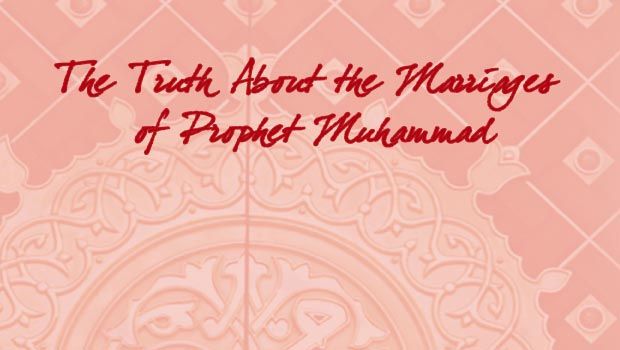With few noteworthy exceptions, historical accounts of the achievements and struggles of North American people since the colonization of the land by Europeans has been written overwhelmingly from the vantage point of Euro-Americans. The phenomenon of history being written by the dominant or conquering group is not unique to the North American or United States experiences. One of the unfortunate outcomes of the ascendency of a culture or civilization over others is the inclination to craft a one-sided historical narrative that minimizes, if noterases,the contributions of those outside the dominant group.
African people have been a major presence in the Western hemisphere and North America since the start of the Transatlantic slave trade, first brought to this continent by the Spanish in the first quarter of the 16th century, followed by the British at the turn of the 17th century. These Euro-American settler colonialists established a system of chattel slavery that has no historical parallel in its systemic brutality across generations, resulting in obliteration of personal identifiers such as culture, language, family units, and religious practices of the enslaved.
At the outset, the transatlantic trade of enslaved Africans targeted majority-Muslim areas in West Africa. Muslims from the Senegambia region were prized targets for enslavement due to their literacy, their expertise in growing rice, and their enterprising spirit. In addition to Senegambians, African Muslims were highly valued in the North American markets as they were often given duties requiring trust and general competency,such as drivers. It is estimated that the Muslim population of enslaved Africans in the United States was from 30-40 percent of the enslaved population, a significantly lower percentage than found in the Caribbean and South America.
Contributions ‘Overlooked, Ignored, and Even Suppressed’
Despite the dehumanizing and barbaric conditions forcefully imposed on enslaved Blacks, they and their descendants made extraordinary contributions to the fields of science, mathematics, medicine, agriculture, literature, education, and most areas of society when afforded any semblance of an opportunity. Dr. Carter G. Woodson was born to formerly enslaved parents in New Canton, Virginia ten years after the abolishment of slavery. Dr. Woodson was the second African American, after Dr. W.E.B. Dubois, to receive a doctorate degree from the prestigious Harvard University. As a historian, he lamented the absence from history books of the unique contributions made by Black people to America and to the world. Dr. Woodson founded the Association for the Study of Negro Life and History in 1915 and the Journal of Negro History in 1916.
Noting that the contributions of African Americans were “overlooked, ignored, and even suppressed by the writers of history textbooks and the teachers who use them,” Dr. Woodson created Negro History Week in 1926, a forerunner to Black History Month. Dr. Woodson said of the necessity of Negro History Week that, “If a race has no history, it has no worthwhile tradition, it becomes a negligible factor in the thought of the world, and it stands in danger of being exterminated.” Black History Month was first proposed by the Black United Students organization at Kent State University in February 1969 and was first celebrated the following year. After six years, Black History Month was celebrated nationally.
Muslims Americans over the years have been varied in their reactions to Black History Month. Some have been oblivious to it or indifferent, and others scornful. Some, though, were receptive and recognized its importance. Based on casual observation, few Muslim Americans in the 1970s through the ‘90s were interested in Black History Month, seeming to believe that Black history in general was irrelevant to the status and progress of the Muslim community in the U.S., let alone the American community-at-large.The decade of the 1970s witnessed an unprecedented increase in the number of African Americans embracing Sunni or orthodox Islam. The Civil Rights Movement had mostly acceded ascendency to the Black Power phase of the Black Freedom Struggle after 1967.Malcolm X was the inspirational leader of tens of thousands of Black youths who were disenchanted with non-violence as a philosophical construct that disallowed any act of violence even in self-defense against the violent assaults and abuses from white supremacists.Malcolm’s life story of transformation and redemption resonated with Black urban youth who could identify with the survival tactics employed by him to navigate the institutional racism and poverty, as well as hyper-incarceration, imposed on the descendants of America’s formerly enslaved population.
Black History: From Malcolm to Contemporary Dawah
The release of the Autobiography of Malcolm X: As Told to Alex Haley in October 1965, eight months after his public assassination, provided the inspiration and impetus for untold thousands of Black youths to embrace Islam after reading about Malcolm’s near total transformation of intellect, character, and spiritual identity after becoming a part of the international brotherhood and sisterhood of Islam. Malcolm inspired legions of newly converted Muslims to study and celebrate Black history in order to extricate themselves from feelings of inferiority and self-loathing inflicted upon them by the dominant culture. During the 1970s, Black History Month, to varying degrees, was generally acknowledged by Muslim African Americans. During this same period, the number of Muslim immigrants to the United States increased in unprecedented numbers due to the Immigration Act of 1965. For the most part, this wave of Muslim immigrants to the U.S. had little motivation to learn the history of Black people in the U.S.They came to this country for various reasons but certain lywere intent, like all immigrants to the U.S., to take full advantage of the economic, educational, and social opportunities available. Most were oblivious to the struggles and sacrifices of the Black Freedom Struggle that resulted in many of those opportunities being afforded to them, even as African Americans’ human and civil rights continued to be violated. The quest for equitable rights and opportunities for Black people continues to the present day.
For the most part, it was not until the new millennium, 2000 CE, that a substantial number of Muslim organizations and masajid realized the dawah (Islamic propagation) potential of organizing annual programs during Black History Month. These Muslim-sponsored events, while geared toward providing accurate information to non-Muslims, also assist Muslims in learning about the struggles and the accomplishments of Muslim and non-Muslim African Americans. African people have been major contributors to the development of this nation and the establishment of the Islamic presence and legacy of Islam in the American context. The history of Muslim Africans in the United States is not the exclusive purview of Muslim African Americans.It belongs to all Muslims regardless of ancestry or geographic origin. Black History Month affords Muslim Americans another opportunity to reclaim and celebrate aspects of our history.






